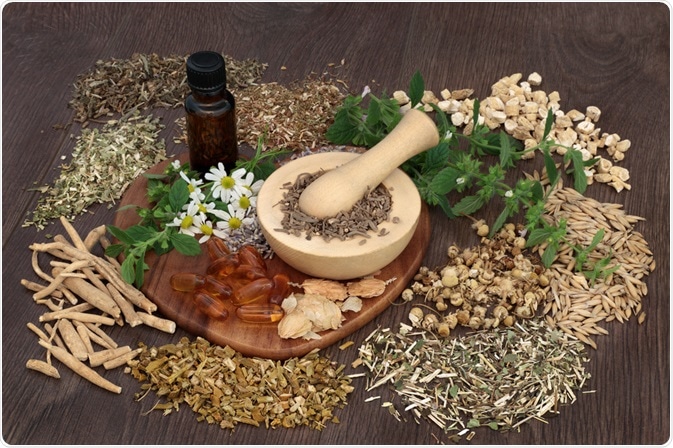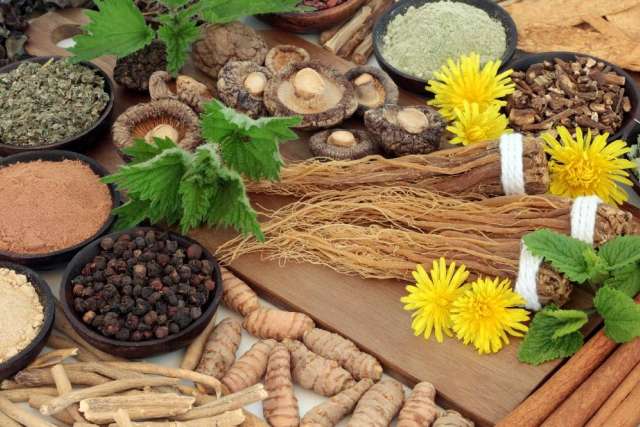
Introduction to Medicinal Herbs
In recent years, there has been a noticeable surge in the popularity of herbal medicine across the United States. This growing interest is not merely a passing trend but reflects a deeper appreciation for the healing power of nature's bounty. Herbal medicine, with its roots in traditional practices from various cultures around the world, offers a holistic approach to health and well-being that resonates with many Americans seeking alternative remedies and preventive care.
The Science Behind Medicinal Herbs
Understanding Herbal Medicine
Herbal medicine operates on the principle that plants contain a myriad of compounds that can be harnessed for therapeutic purposes. Whether consumed as teas, tinctures, or capsules, herbs have been used for centuries to address a wide range of health concerns, from minor ailments to chronic conditions.
Phytochemicals and Healing Properties
At the heart of herbal medicine are phytochemicals, the biologically active compounds found in plants. These phytochemicals possess various healing properties, such as anti-inflammatory, antioxidant, and antimicrobial effects, which contribute to the medicinal value of herbs. For example, the anti-inflammatory properties of turmeric can help alleviate joint pain, while the antioxidants in green tea may protect against cardiovascular disease.
Research and Evidence
While traditional wisdom has long extolled the virtues of medicinal herbs, modern science is increasingly validating their efficacy through rigorous research and clinical studies. From the anti-anxiety effects of chamomile to the immune-boosting properties of echinacea, there is a growing body of evidence supporting the therapeutic benefits of certain herbs in managing and preventing various health conditions.
The Mystery Unveiled: Lesser-Known Medicinal Herbs
Adaptogenic Herbs
Adaptogens are a class of herbs that help the body adapt to stress and maintain balance, both physically and mentally. These include revered plants like ashwagandha, holy basil, and rhodiola, which have been used for centuries in Ayurvedic and traditional Chinese medicine to support resilience and vitality.
Nootropic Herbs
In today's fast-paced world, cognitive health is a growing concern for many Americans. Nootropic herbs, also known as "smart herbs," offer natural solutions to enhance cognitive function and mental clarity. Herbs like ginkgo biloba, bacopa monnieri, and lion's mane mushroom are prized for their ability to sharpen focus, improve memory, and protect against age-related cognitive decline.
Immunomodulatory Herbs
A robust immune system is essential for overall health and resilience against infections and diseases. Immunomodulatory herbs, such as astragalus, elderberry, and medicinal mushrooms like reishi and maitake, help regulate immune function and strengthen the body's natural defenses. Incorporating these herbs into your daily routine can help bolster immunity and ward off illness.
Digestive Herbs
Digestive issues, ranging from indigestion to irritable bowel syndrome, are prevalent among Americans of all ages. Fortunately, nature provides an array of herbs that can soothe and support digestive health. From peppermint and ginger to fennel and chamomile, these digestive herbs offer relief from discomfort and promote optimal digestion.

Also read:- Discover the Power of Ayurvedic Stress Relief
Exploring Traditional Wisdom and Modern Applications
Traditional Herbalism Practices
Across cultures and civilizations, traditional herbalism has been a cornerstone of healthcare for millennia. From Native American herbal remedies to the ancient healing traditions of India and China, each culture has its own rich heritage of plant-based medicine. Today, these traditional practices continue to inspire modern herbalists and holistic healthcare practitioners, underscoring the timeless wisdom of nature's pharmacy.
Integrative Medicine Approaches
As interest in herbal medicine grows, so too does its integration into mainstream healthcare practices. Integrative medicine combines conventional medical treatments with complementary therapies, including herbal supplements and botanical drugs. This holistic approach recognizes the interconnectedness of mind, body, and spirit, empowering individuals to take an active role in their health and well-being.
The Importance of Quality and Safety
Sourcing and Sustainability
With the increasing demand for medicinal herbs, it's crucial to source them responsibly and support sustainable harvesting practices. Many herbs are harvested from the wild or cultivated in environmentally sensitive regions, making conservation efforts paramount. By choosing products from reputable suppliers committed to ethical sourcing and sustainable agriculture, consumers can ensure the long-term viability of herbal medicine.
Quality Control and Regulation
To safeguard consumer health and confidence, stringent quality control measures and regulatory standards govern the production and sale of herbal products. These include Good Manufacturing Practices (GMP), which ensure consistency, purity, and potency, as well as regulatory oversight by agencies like the Food and Drug Administration (FDA). By adhering to these standards, manufacturers uphold the integrity and safety of herbal remedies.
Conclusion
In conclusion, the mystery behind medicinal herbs is gradually being unveiled as science sheds light on their therapeutic potential and traditional wisdom finds resonance in modern healthcare practices. From adaptogenic herbs that help us adapt to stress to digestive herbs that soothe our stomachs, nature provides a bounty of remedies for our ailments. As we embrace the healing power of plants, let us do so responsibly, with a commitment to quality, sustainability, and the well-being of both people and planet.
FAQs
Q: Are medicinal herbs safe to use? A: When used appropriately and under the guidance of qualified healthcare professionals, medicinal herbs are generally safe for most people. However, it's essential to research and understand potential interactions with medications and consult with a healthcare provider before starting any herbal regimen.
Q: Can I use medicinal herbs alongside prescription medications? A: In some cases, yes, but it's crucial to consult with a healthcare provider to avoid potential interactions. Certain herbs may enhance or diminish the effects of prescription medications, so it's essential to disclose all supplements and medications you're taking to your healthcare provider.
Q: How can I ensure the quality of herbal products I purchase? A: Look for products from reputable manufacturers that adhere to Good Manufacturing Practices (GMP) and undergo third-party testing for purity and potency. Additionally, choose products with standardized extracts, which ensure consistency in dosage and effectiveness.
Q: Are there any side effects associated with medicinal herbs? A: Like any form of medicine, medicinal herbs can cause side effects in some individuals, although they are generally mild compared to pharmaceutical drugs. Common side effects may include gastrointestinal upset, allergic reactions, or interactions with medications.
Q: Can children and pregnant women use medicinal herbs? A: It's essential to exercise caution when using medicinal herbs in children and pregnant women, as their safety profiles may differ from adults. Consult with a qualified healthcare provider before administering herbs to children or during pregnancy to ensure safety.
Q: How long does it take to see results from using medicinal herbs? A: The time it takes to experience results from using medicinal herbs varies depending on the individual, the condition being treated, and the herb's potency. Some people may notice immediate effects, while others may require more extended use for noticeable improvements in health.
Q: Are herbal supplements regulated by the government? A: Herbal supplements are regulated by the Food and Drug Administration (FDA) under the Dietary Supplement Health and Education Act (DSHEA). However, unlike pharmaceutical drugs, herbal supplements do not undergo the same rigorous testing and approval process. Consumers should choose products from reputable manufacturers and be vigilant about quality and safety.
Q: Can I grow medicinal herbs at home? A: Yes, many medicinal herbs can be grown at home in gardens or indoor pots. Growing your own herbs allows you to ensure freshness and quality while connecting with nature and enjoying the therapeutic benefits of gardening. Just be sure to research proper cultivation techniques and potential environmental considerations for each herb.
Q: Are there any contraindications for using medicinal herbs? A: Yes, certain medical conditions, such as liver or kidney disease, may warrant caution or avoidance of specific herbs. Additionally, some herbs may interact with prescription medications or exacerbate certain health conditions. It's essential to consult with a healthcare provider before using medicinal herbs, especially if you have underlying health concerns or are taking medications.
Q: Can I use medicinal herbs for acute or severe medical conditions? A: While medicinal herbs can complement conventional medical treatments, they are not a substitute for emergency care or treatment of acute or severe medical conditions. In cases of serious illness or medical emergencies, it's crucial to seek prompt medical attention from qualified healthcare professionals.


0 Comments